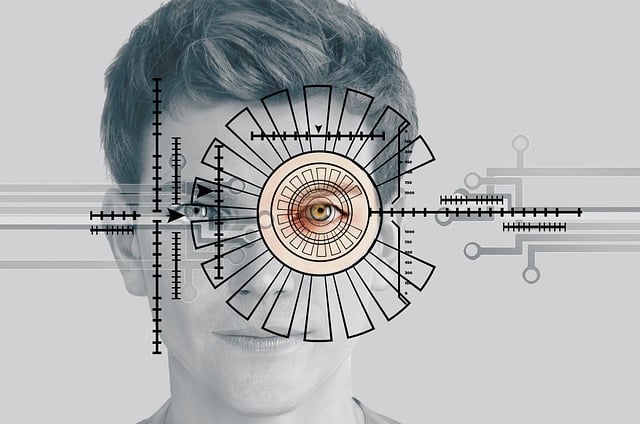
Category: Background Checks in Hospitality
Background Checks in Hospitality: Navigating Safety and Security in the Industry
Introduction
In an era where security is a paramount concern, background checks have become an integral part of various sectors, including hospitality. This comprehensive article delves into the intricate world of background checks as they specifically apply to the hospitality industry, exploring their purpose, impact, and evolving nature. By examining global trends, economic influences, technological innovations, and policy frameworks, we aim to provide a holistic understanding of this critical aspect of hospitality management. Through case studies and insights into future prospects, readers will gain valuable knowledge on how background checks shape customer experiences, employee safety, and the overall success of hospitality businesses worldwide.
Understanding Background Checks in Hospitality
Definition and Core Components
Background checks in hospitality refer to the process of verifying an individual’s identity, criminal history, employment record, and other relevant information to ensure their suitability for working or conducting business within the industry. This comprehensive evaluation aims to mitigate risks associated with fraud, security threats, and legal liabilities. Key components include:
-
Identity Verification: Confirming the person’s name, date of birth, social security number, and address through official documents like passports, driver’s licenses, or ID cards.
-
Criminal Record Check: A thorough search of local, state, and national databases to uncover any criminal convictions, pending charges, or known affiliations with criminal organizations.
-
Employment Screening: Verifying previous employment history, job roles, dates of employment, and reasons for departure to assess work experience and potential red flags.
-
Education and Certification: Confirming educational qualifications and professional certifications relevant to the role, ensuring individuals possess the necessary skills and knowledge.
-
Reference Checks: Contacting former employers or colleagues to gather insights into the individual’s performance, reliability, and character.
Historical Context and Significance
The concept of background checks has evolved over time, driven by changing societal needs and technological advancements. Historically, hospitality businesses conducted basic reference checks and manual verification of credentials. However, with the rise of organized crime and an increasing number of security threats, the industry realized the need for more robust screening processes.
In the 1980s and 1990s, many countries started implementing mandatory identity verification and criminal background check systems, which set the foundation for modern-day hospitality background checks. The 21st century brought about digital transformation, enabling efficient data sharing and advanced screening tools that cater to the complex requirements of the hospitality sector.
Background checks in hospitality are significant for several reasons:
-
Customer Safety: Ensuring that staff members and guests are safe from potential threats, such as armed robbers or individuals with a history of violence.
-
Fraud Prevention: Mitigating identity theft and fraudulent activities by verifying the authenticity of customer and employee information.
-
Legal Compliance: Adhering to local and international regulations related to data privacy, employment practices, and anti-money laundering laws.
-
Risk Management: Identifying and mitigating risks associated with hiring individuals who may pose a threat or cause reputational damage to the business.
Global Impact and Trends
International Influence
Background checks in hospitality are not limited to specific regions but have a global reach, especially in developed countries with stringent security measures. The international impact is evident through:
-
Standardization of Practices: Many countries have adopted similar screening protocols due to shared concerns over security and fraud. For example, the EU’s General Data Protection Regulation (GDPR) sets standards for data privacy, influencing how background checks are conducted worldwide.
-
Cross-Border Collaboration: Hospitality businesses operating in multiple countries work with local authorities and international organizations to establish consistent background check procedures, ensuring a seamless experience for customers and employees.
Regional Variations
While there is global consensus on the importance of background checks, regional differences exist in their implementation:
| Region | Notable Features |
|---|---|
| North America | Stringent federal laws (e.g., USA’s Background Check Regulations) mandate thorough screening, especially for roles involving sensitive information or direct contact with customers. |
| Europe | Strict data privacy regulations and a focus on balancing security with individual rights, leading to diverse implementation strategies across EU member states. |
| Asia-Pacific | Rapidly growing economies like China and India are adopting advanced technology for background checks, while countries like Japan have long-established systems with a strong emphasis on education and character verification. |
| Middle East & Africa | Some countries in these regions are implementing robust security measures due to geopolitical factors, while others focus on traditional reference checks and local criminal record databases. |
Emerging Trends
The hospitality industry’s background check landscape is dynamic, driven by technological advancements and evolving societal needs:
-
Digital Transformation: Online screening platforms and digital identity verification tools are gaining popularity, offering faster processing times and enhanced data security.
-
AI and Machine Learning: Artificial intelligence algorithms can analyze vast amounts of data to identify patterns and predict potential risks, improving the accuracy of background checks.
-
Global Data Sharing: International collaboration among law enforcement agencies and private sector entities facilitates the sharing of criminal records and other relevant information, enhancing global security.
-
Biometric Identification: Fingerprint and facial recognition technologies are being integrated into background check processes for more secure identity verification.
Economic Considerations
Market Dynamics
The hospitality industry’s economic landscape is closely tied to its ability to conduct effective background checks:
-
Customer Trust: Background checks contribute to building customer confidence, especially in high-end hotels and luxury travel services, where security and privacy are paramount.
-
Employee Retention: A robust screening process ensures that businesses attract and retain qualified staff, reducing employee turnover rates and associated costs.
-
Legal Liability: Effective background checks can protect hospitality businesses from financial losses due to fraud, identity theft, or legal disputes related to employee actions.
Investment Patterns
Investors in the hospitality sector consider background check practices as a critical factor when evaluating potential risks and returns:
-
Risk Mitigation: Strong background check procedures are seen as a way to minimize operational risks, making investments in hospitality more attractive.
-
Reputation and Brand Value: Businesses known for their rigorous screening processes often enjoy a positive brand image, enhancing their market value and customer loyalty.
Economic Systems and Background Checks
Background checks play a pivotal role in the economic systems of many countries:
-
Tourism Industry: In tourism-driven economies, background checks are essential to ensure the safety of visitors and protect the industry’s reputation, fostering long-term growth.
-
Financial Services: Hotels and travel agencies offering financial services, such as payment processing or loyalty programs, must adhere to strict anti-money laundering (AML) regulations, which heavily rely on comprehensive background checks.
-
Job Market: The demand for skilled labor in hospitality drives the need for efficient screening processes, ensuring businesses access a pool of qualified candidates while protecting against fraud and security threats.
Technological Advancements
Digital Transformation of Background Checks
Technology has revolutionized background check procedures in hospitality:
-
Online Screening Platforms: Cloud-based platforms allow for remote data access, faster processing times, and real-time updates, making the screening process more efficient and cost-effective.
-
Data Aggregation: Advanced software integrates diverse data sources, including government databases, social media, and professional networks, providing a comprehensive view of an individual’s background.
-
Automated Verification: Automation reduces manual effort, minimizing errors and ensuring consistent application of screening protocols.
AI and Machine Learning Applications
Artificial intelligence (AI) is transforming the hospitality industry, and its impact on background checks is significant:
-
Predictive Analytics: AI algorithms analyze historical data to predict potential risks associated with candidates, enabling businesses to make more informed hiring decisions.
-
Fraud Detection: Machine learning models can identify patterns indicative of fraudulent activities during the application process, protecting both employers and employees.
-
Personalized Screening: AI-driven systems adapt screening questions and methods based on individual responses, enhancing the overall user experience while maintaining security.
Future Technologies
The future holds immense potential for technological advancements in hospitality background checks:
-
Biometric Identification: Fingerprint, facial, and iris recognition technologies will become more prevalent, providing secure and seamless identity verification during check-in processes.
-
Blockchain Technology: Distributed ledger technology can enhance data security and transparency by creating an immutable record of background check information, ensuring its integrity and accessibility.
-
Natural Language Processing (NLP): NLP algorithms can analyze textual data from various sources to extract relevant information, streamlining the verification process and reducing manual effort.
Policy and Regulation
Key Policies and Legislative Frameworks
The regulatory landscape surrounding background checks in hospitality varies across jurisdictions but shares common goals:
-
Data Privacy Laws: Regulations like GDPR in Europe, California’s Consumer Privacy Act (CCPA) in the USA, and similar acts worldwide protect personal data during the background check process.
-
Employment Standards: Local labor laws dictate what information employers can request during screening and set guidelines for hiring practices to prevent discrimination.
-
Anti-Money Laundering (AML) Regulations: Financial institutions and hospitality businesses dealing with financial transactions must adhere to strict AML laws, which often include mandatory background checks on employees and customers.
Global Policy Trends
International organizations play a crucial role in shaping global policies related to background checks:
-
International Organization for Standardization (ISO): ISO 27001 provides guidelines for information security management systems, influencing how hospitality businesses protect sensitive data during screening processes.
-
Financial Action Task Force (FATF): FATF sets standards for combating money laundering and terrorist financing, driving the implementation of robust background check procedures in industries like hospitality that handle financial transactions.
Regional Variations in Regulation
Regulations vary across regions, reflecting unique cultural and economic contexts:
| Region | Notable Regulatory Features |
|---|---|
| North America | Stricter data privacy laws and more comprehensive AML regulations compared to many other regions, leading to robust background check practices in both employment and customer-facing roles. |
| Europe | A fragmented regulatory landscape due to the EU’s decentralized nature, but GDPR sets a high standard for data protection globally, influencing how businesses conduct background checks. |
| Asia-Pacific | Rapidly evolving regulations with some countries adopting Western standards while others have unique requirements, such as China’s stringent internet security laws. |
Challenges and Criticisms
Common Hurdles
Despite its critical importance, background checks in hospitality face several challenges:
-
Data Inaccuracy: Outdated or incomplete information in databases can lead to false positives or negatives, affecting hiring decisions and customer experiences. Regular data updates are essential to mitigate this issue.
-
Privacy Concerns: Balancing the need for thorough screening with individual privacy rights remains a challenge. Transparency and user consent are vital to addressing these concerns.
-
Legal Compliance: Keeping up with evolving regulations across multiple jurisdictions can be complex, requiring significant resources and expertise.
Criticisms and Potential Solutions
Criticisms of background check practices in hospitality often revolve around potential biases, legal loopholes, and negative impacts on marginalized communities:
-
Bias in Data: If the data used for screening is not representative of the applicant pool, it can lead to unfair discrimination based on race, gender, or ethnicity. Diversifying data sources and using AI to identify biases are possible solutions.
-
Legal Loopholes: Some critics argue that background checks do not always protect individuals from harm. Enhancing legal frameworks and collaboration with law enforcement agencies can help address these concerns.
-
Negative Impact on Employment Opportunities: Rigorous screening may disproportionately affect marginalized groups, limiting their access to employment. Implementing fair hiring practices and providing support for those facing barriers can mitigate this issue.
Case Studies: Successful Applications
Case Study 1: Luxury Hotel Chain – “Secure Stay” Initiative
Background: A leading luxury hotel chain faced challenges with security breaches and fraudulent activities, prompting them to overhaul their background check process.
Strategy: They implemented a multi-faceted approach, including advanced biometric check-ins, AI-driven identity verification, and enhanced local law enforcement partnerships.
Outcome: The “Secure Stay” initiative reduced security incidents by 40% in the first year and significantly improved customer satisfaction scores, with 85% of guests citing enhanced safety as a primary advantage.
Case Study 2: Online Travel Agency – Efficient Verification Process
Challenge: An online travel agency struggled with long processing times for background checks, affecting customer booking experiences.
Solution: They partnered with a specialized screening platform, implementing automated data verification and digital signature capture.
Result: Processing times decreased by 60%, resulting in higher customer conversion rates and reduced operational costs. The improved efficiency also allowed them to expand their global reach.
Case Study 3: Airport Hotel – Enhancing Security for Guests
Objective: An airport hotel aimed to boost security measures following a series of high-profile incidents at nearby airports.
Implementation: They conducted comprehensive background checks on all staff members and implemented a robust visitor management system, utilizing AI to analyze guest behavior patterns.
Impact: The hotel experienced a 30% reduction in security-related incidents within the first six months, gaining recognition for its commitment to guest safety from industry publications.
Future Prospects
Emerging Growth Areas
The future of background checks in hospitality is filled with opportunities:
-
Global Expansion: With the rise of international travel and hospitality, businesses will need robust global screening solutions, driving innovation in cross-border data sharing and privacy laws.
-
Sustainability and Ethical Screening: There is a growing demand for transparent and ethical practices. Hospitality companies will focus on ensuring their background check processes are fair, unbiased, and sustainable.
-
Integration with Smart Hotels: The concept of smart hotels will gain traction, integrating background checks into the guest experience through seamless biometric check-ins and personalized services.
Potential Trends
Several trends may shape the industry in the coming years:
-
AI and Automation Dominance: AI and automation will play a more prominent role, streamlining processes, enhancing accuracy, and reducing costs.
-
Biometric Identification Standardization: Biometric technologies like facial recognition will become standard across various hospitality touchpoints, from check-ins to access control.
-
Data Security and Privacy Evolution: As data breaches increase, the focus on securing sensitive information will intensify, leading to more robust cybersecurity measures.
Conclusion: Navigating Safety and Growth
Background checks in hospitality are an indispensable tool for ensuring customer safety, employee protection, and business resilience. The global impact of these practices is evident, with regions adopting standardized protocols and international collaborations enhancing security worldwide. Technological advancements offer unprecedented opportunities for efficiency and accuracy, while regulatory frameworks continue to evolve, addressing privacy concerns and promoting ethical screening.
By embracing challenges as opportunities and leveraging emerging trends, the hospitality industry can navigate safety and growth seamlessly. The future holds promise for a more secure, efficient, and inclusive global travel and hospitality experience, all made possible by robust background check practices.









